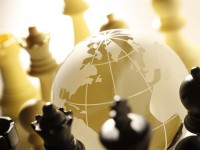
Meicen Sun, Ph.D. candidate, Massachusetts Institute of Technology
Feb 15, 2016
Many “realist” scholars make predictions about China based on what the Soviet Union did during the Cold War, which assumes the two cases are similar in more ways than are warranted. An enormous amount of cultural capital remains untapped for its potential in collective identity construction. Success in constructing a new Asian identity will not only strengthen cooperation in the short run, but also weaken the appeal of military contestation over time.
Cui Liru, Former President, China Institutes of Contemporary International Relations
Jan 20, 2016
Global developments have led China to take a more proactive approach in dealing with international issues in 2015 that saw China transition to practicing “major-country” diplomacy. As U.S.-China relations are turning more contentious and competitive, the two countries must seek convergence of common interests and avoid conflict and confrontation.
Wang Yusheng, Executive Director, China Foundation for Int'l Studies
Jan 18, 2016
As the new year dawns, the U.S. still struggles with the effort to shape the world with itself as the center. Resisting the opportunity to build a more positive relationship with China, underpinned by stronger and closer cooperation, keeps Washington trapped in the past, while many of its allies, including Britain, Europe, Canada and Australia, have embraced a multipolar world that is no threat to the U.S., except to its national ego.
Wu Zurong, Research Fellow, China Foundation for Int'l Studies
Jan 07, 2016
In a new world order, in the interest of the US and the whole world, the Washington has to make continued efforts to work with others to deal with the complicated world challenges, otherwise the successes and progress already made – from Iran to Paris and into the future -- could be forfeited.
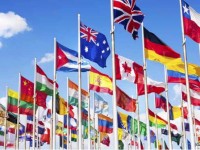
Yin Chengde, Research Fellow, China Foundation for International Studies
Dec 03, 2015
Competing visions, one with the UN as its spiritual center and the US counterview with itself at the heart of a unipolar world, are vying to shape the world’s future. The US remains the sole superpower in the world, but its attempt to remain the driving force in global governance is doomed to fail in a changing, multipolar world.
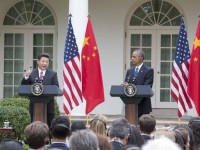
He Yafei, Former Vice Minister of Foreign Affairs
Sep 28, 2015
The Xi-Obama meetings have demonstrated that China and the US can be frank and open with each other when addressing difficult issues. The result could be a new order in a multipolar world that better accommodates the needs and desires of the entire globe.
William Overholt, Senior Fellow, Fung Global Institute
Sep 17, 2015
The gravest threat to American global leadership is neither Russia nor China but continued interest group-driven Congressional abandonment of the kind of balanced strategy that won the Cold War.
Tom Watkins, President and CEO of the Economic Council of Palm Beach County, FL
Aug 21, 2015
President Xi Jinping will visit the United States in September, partaking in a high stakes, scripted, state dinner with President Obama and other dignitaries at the White House. The Chinese leader will be in the neighborhood for the celebration of the 70th anniversary of the United Nations.
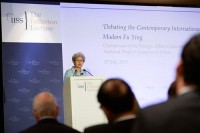
Fu Ying, Founding Chair of Center for International Security and Strategy, Tsinghua University; China's former Vice Minister of Foreign Affairs
Jul 31, 2015
Whether the world’s nations can adjust to changes and to work with instead of working against the new arrivals on the world stage is going to be a major test. China has chosen to integrate itself into the international order, and has greatly benefited from being part of it, so China should be seen as a partner, not a competitor.
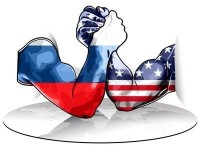
Yin Chengde, Research Fellow, China Foundation for International Studies
Jul 22, 2015
The US pursues increasingly aggressive strategies against Russia, partly because it perceives Russia’s national power as too diminished to wage a meaningful fight, and now it has to face the music. Washington must cool things off by abandoning confrontation.